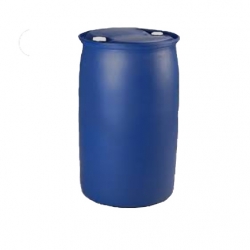No products in the cart.
Active filters
E325 - Sodium Lactate
Sodium lactate is the sodium salt of lactic acid, which is an organic acid produced naturally in human metabolism.
E101 - Riboflavin
Riboflavin, also known as vitamin B2, is a food additive classified under the code E101.
E120 - Carmine
Carmine, also known by the code E120, is a natural food coloring obtained from cochineal insects. Cochineal insects are parasitic insects that feed on certain plants, and carmine colorants are extracted from the female cochineal (Dactylopius coccus).
WPC Whey Protein Concentrat
WPC, also known as Whey Protein Concentrate, is a concentrate of whey protein with a whey protein content ranging from 15% to 80%. ... WPC is typically produced using whey ultrafiltration, and protein concentration can be increased through the use of diafiltration.
Potassium Tartrate
Potassium tartrate is the potassium salt of tartaric acid, a natural substance found in grapes.
Sodium Alignates
Sodium alginate or sodium polymannuronate, is a food additive, used in drinks, consisting of alginate and sodium.
DISODIUM CALCIUM
Disodium Calcium appears as a white crystalline powder that is odorless, slightly soluble in water, and inflammable at high temperatures. This compound is stable and widely used in various industrial and food sectors.
Glucose syrup
Glucose syrup is a widely used ingredient in the food industry. It can be obtained through enzymatic hydrolysis of starch, with a DE (Dextrose Equivalent) higher than 20.
VITAMIN A
Vitamin A is a fat-soluble vitamin stored in our liver. It contributes to the natural development and normal growth of the body while maintaining the health of our eyes, skin, and immune system.
VITAMIN AD3
Vitamin AD3 is a combination of fat-soluble vitamins, comprising Vitamin A and Vitamin D3. This combination is often used in various medical and agricultural applications due to its health benefits and essential role in metabolism.
VITAMIN D3
Cholecalciferol, commonly known as Vitamin D3, is a specific form of Vitamin D. This fat-soluble molecule plays an essential role in various biological processes and is known for its multiple health benefits.
VITAMIN E 50
Vitamin E, often marketed under the name "Vitamin E 50," is a fat-soluble antioxidant essential for the human body. This specific form of vitamin E, with a concentration of 50%, is commonly used in various applications, including food, cosmetics, and health products.
VITAMIN K3
Vitamin K3 is distinct from natural forms of vitamin K, such as vitamin K1 (phylloquinone) found in green vegetables, and vitamin K2 (menaquinone) found in certain fermented food products.
Lycopéne
Lycopene is a carotenoid. Therefore, it is a natural red pigment found in certain plants. Insoluble in water, this antioxidant is transported in blood lipids to accumulate in certain organs.
GLUCANASES
Glucanases are enzymes that have the ability to break down glucans, which are polysaccharides composed of multiple glucose units linked together. These enzymes play a key role in breaking down the cell walls of plants, fungi, and bacteria.
E262 - ACETIC ACID
Acetic acid, also known as ethanoic acid, is a chemical compound belonging to the carboxylic acid family. It is widely utilized in various applications, including the food industry, vinegar production, and the chemical and pharmaceutical industries.

































































